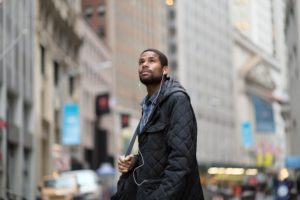How Muslim Youth Can Impact Society
Self Versus Others
Youth often struggle with striking a balance between responsibility towards self versus responsibility towards others. Their responsibility for making an impact on society primarily begins within themselves, in their beliefs, morals, and education and subsequently extends outward through their actions, which should be based on justice. adult to navigate through life. It is what binds and guides us to a sense of morality in our dealings with ourselves and others. This sense of morality ultimately manifests itself through actions and deeds. Of course, we strive to be the best we can, despite all our internal and external struggles.
Impact of Education
In early adulthood, we are primarily focused on education and laying the foundation for a career and family. This is something Islam stresses for both men and women, youthful or elderly; there is no end to education and learning. Ayatullah Sayyid al-Sistani, in his ‘Advice to Youth’, written last year, further advises youth to, “try to learn a trade and acquire a specialty, and exhaust yourself in that pursuit.” The community, in turn, further benefits from educated, morally sound, professional youth who thus become the driving force of progress and innovation. Also, see our article on ‘Raising Youth to Contribute to Society’, https://imam-us.org/raising-youth-contribute-community/
The Holy Prophet (p) said: “The good of this world and the world to come is with knowledge.” (Bihar al-Anwar, vol.1, p. 204)
Upon establishing ourselves as individuals, we can then direct our attention toward making an impact on the community around us. Islam greatly emphasizes social responsibility for those around us. We often think that merely by praying and fasting we will earn God’s pleasure, when frequently it is our actions towards others that hold more value.
In the Holy Quran, we see the hierarchy of responsibility towards others,
“Worship God and consider no one equal to Him. Be kind to your parents, relatives, orphans, the destitute, your near and distant neighbors, your companions, wayfarers, and your slaves. God does not love the proud and boastful ones” (4:36)
Unity & Charity
It is not always easy to be diplomatic with those around us, to be kind, patient, forgiving, and charitable with our time or money. They may differ with us politically, religiously, culturally, and socially. Herein lies the challenge, to comprehend the greater understanding of unity and inclusion rather than hatred and isolationism. It is difficult for human beings, in general, not just for youth, to push past emotions, judgments, and ego, when interacting with those we do not understand. However, our ultimate strength, as human beings, lies in unity.
The Holy Quran says, “All of you united hold fast to the rope of God (the Quran and His Messenger), and recall how He favored you when your hostility to each other had torn you apart. He united your hearts in one faith and through His Grace you became brothers.” (3:103)
In every society and community, there are always those who need help, whether it be financial or otherwise. It is within this framework of society that it becomes incumbent on us, including our youth, to give charity; in fact, it is what secures our own happiness, health, and financial stability. Our youth have become leaders in donating what little they have, due to their humanitarian, philanthropic nature. and wanting to make a difference in the world. For more on how to help in specific ways, read our blog on ‘How to Help Alleviate Hunger in our Communities.’
Justice
Action based on a system of justice is also very prominent in the school of thought of the Ahl al-Bayt, the Holy Progeny of the Prophet (pbut), in that without belief in God’s justice faith is essentially vulnerable to doubt. There is also an obligation on us, as individuals, to promote justice, as well as condemn injustice (al-amr bi al-maroof and al-nahin al-munkar). Our youth, with their energy and passion, have made positive changes on their college and high school campuses, within mosques, and also within the greater framework of political and non-political organizations.
The Holy Prophet (p) said, “Anyone who guides others toward good, is like the one who does the good itself.” (Wasaeil al-Shia, al-Hurr al-Ameli, V 16, P 286 and 287.)
We all have a duty to ourselves first to establish a basis of morality, whether we are young adults or not. This morality would in turn will benefit the community and others. Our youth, in particular, can contribute immensely to our society through their professional expertise and their service to the Muslim and non-Muslim community. They can also make an impact through humanitarian acts of charity and their inclination towards supporting justice and speaking out against injustice.
Want to volunteer with us? Click here to find out how, https://imam-us.org/get-involved/volunteer/.


Leave a Comment:
You must be logged in to post a comment.